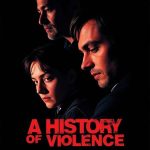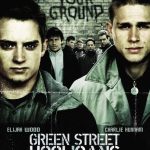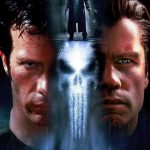Traffic (2000)

Traffic (2000) is a critically acclaimed crime drama directed by Steven Soderbergh that offers a gritty, multifaceted exploration of the war on drugs, its impact on individuals and society, and the complex web of politics, law enforcement, and addiction. The film, based on the 1989 German miniseries Traffik by Hans-Christian Schmid, features an ensemble cast, including Michael Douglas, Catherine Zeta-Jones, Benicio del Toro, Don Cheadle, and Luis Guzmán.
The film is structured around multiple storylines that intersect as they explore different perspectives on the drug trade in the United States and Mexico:
- The Story of Judge Robert Wakefield (Michael Douglas): Wakefield is appointed as the nation’s new drug czar, tasked with leading the government’s efforts to combat the drug trade. He soon learns the harsh realities of the issue when his teenage daughter (played by Erika Christensen) becomes addicted to drugs, complicating his ability to separate personal and professional life.
- The Story of Helena Ayala (Catherine Zeta-Jones): Helena is the wife of a drug lord, Carlos Ayala (played by Steven Bauer), who is arrested and charged for his involvement in the drug trade. As Helena tries to navigate the pressures of maintaining her family’s criminal empire, she faces moral dilemmas and discovers the extent of her husband’s illicit activities.
- The Story of Javier Rodriguez (Benicio del Toro): A Mexican cop, Javier is caught in the middle of the drug war in Mexico, dealing with corruption and lawlessness as he tries to balance his moral compass while working within a flawed system. His character’s journey reflects the struggle of many in law enforcement who are trying to uphold justice in an environment rife with corruption.
- The Story of the Drug Enforcement Administration (DEA): The film also highlights the perspective of DEA agents, including Montel Gordon (played by Don Cheadle) and Ray Castro (played by Luis Guzmán), as they work undercover to dismantle drug networks while dealing with the complexities of their own personal lives.

Soderbergh’s direction is notable for its non-linear storytelling, with each storyline unfolding separately but weaving together thematically. The film’s fragmented structure allows it to explore the different facets of the drug trade from various angles, offering a more comprehensive and nuanced view of its impact on people from different walks of life.
The film’s powerful performances, coupled with its realistic portrayal of the drug trade, addiction, and the corruption it breeds, make Traffic a significant and thought-provoking work that highlights the moral complexities and personal tolls of the war on drugs.

The cinematography by Peter Andrews (Soderbergh’s pseudonym) is another standout, using distinct color palettes to differentiate between the various storylines: cool blues for the American scenes, warm tones for Mexico, and a washed-out, almost dreamlike feel for the drug-fueled moments.
Traffic was a critical and commercial success, winning 4 Academy Awards, including Best Director for Soderbergh, and Best Supporting Actor for Benicio del Toro, whose portrayal of Javier Rodriguez was widely praised. The film was also nominated for Best Picture and Best Adapted Screenplay, making it one of the most influential films of the early 2000s.











